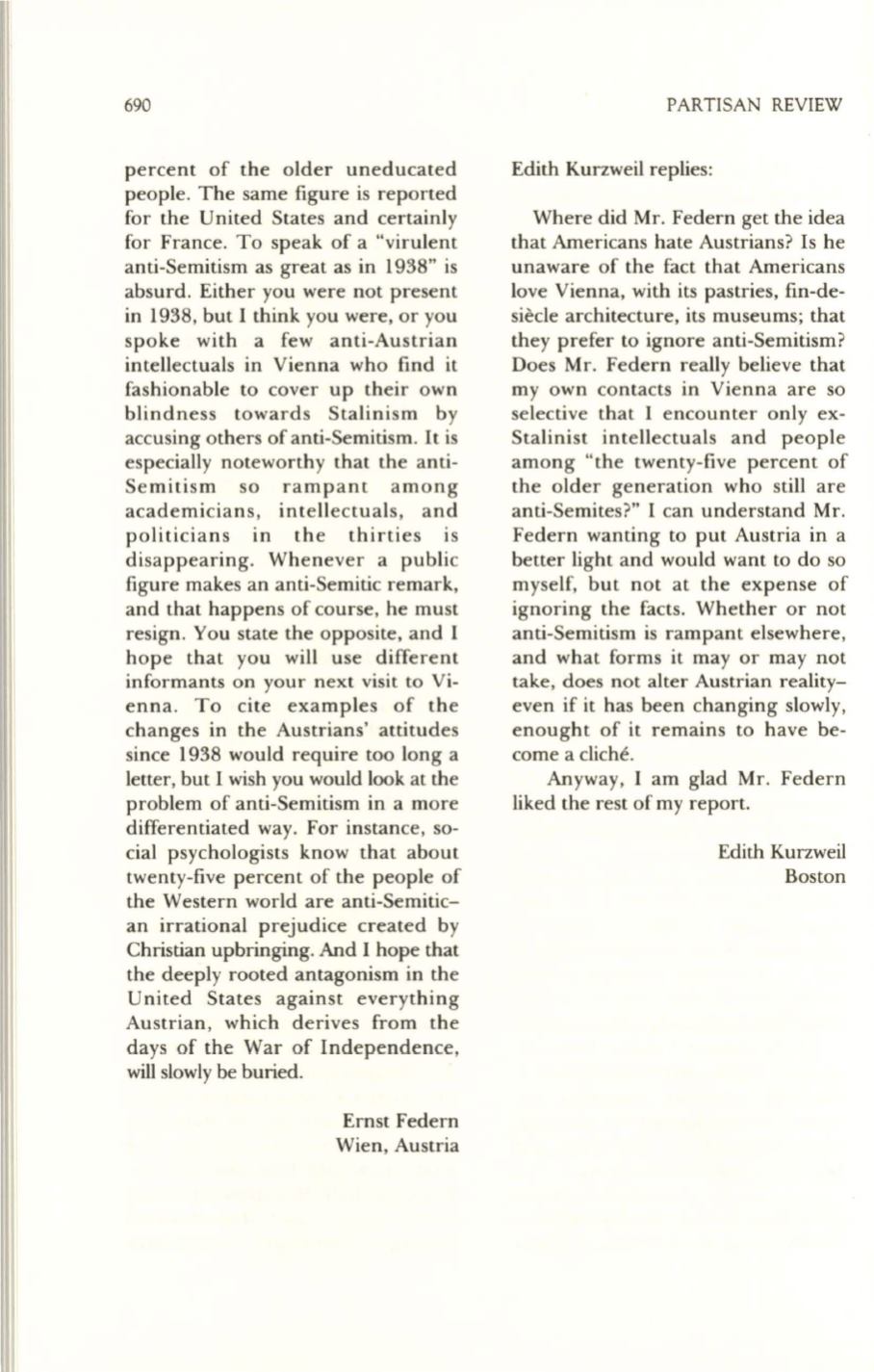
690
percent of the older uneducated
people. The same figure is reported
for the United States and certainly
for France. To speak of a "virulent
anti-Semitism as great as in 1938" is
absurd. Either you were not present
in 1938, but I think you were, or you
spoke with a few anti-Austrian
intellectuals in Vienna who find it
fashionable to cover up their own
blindness towards Stalinism by
accusing others of anti-Semitism. It is
especially noteworthy that the anti–
Semitism so rampant among
academicians, intellectuals, and
politicians in the thirties is
disappearing. Whenever a public
figure makes an anti-Semitic remark,
and that happens of course, he must
resign. You state the opposite, and I
hope that you will use different
informants on your next visit to Vi–
enna . To cite examples of the
changes in the Austrians' attitudes
since 1938 would require too long a
letter, but I wish you would look at the
problem of anti-Semitism in a more
differentiated way. For instance, so–
cial psychologists know that about
twenty-five percent of the people of
the Western world are anti-Semitic–
an irrational prejudice created by
Christian upbringing. And I hope that
the deeply rooted antagonism in the
United States against everything
Austrian, which derives from the
days of the War of Independence,
will slowly be buried.
Ernst Federn
Wien, Austria
PARTISAN REVIEW
Edith Kurzweil replies:
Where did Mr. Federn get the idea
that Americans hate Austrians? Is he
unaware of the fact that Americans
love Vienna, with its pastries, fin-de–
siecle architecture, its museums; that
they prefer to ignore anti-Semitism?
Does Mr. Federn really believe that
my own contacts in Vienna are so
selective that I encounter only ex–
Stalinist intellectuals and people
among "the twenty-five percent of
the older generation who still are
anti-Semites?" I can understand Mr.
Federn wanting to put Austria in a
better light and would want to do so
myself, but not at the expense of
ignoring the facts. Whether or not
anti-Semitism is rampant elsewhere,
and what forms it mayor may not
take, does not alter Austrian reality–
even if it has been changing slowly,
enought of it remains to have be–
come a cliche.
Anyway, I am glad Mr. Federn
liked the rest of my report.
Edith Kurzweil
Boston


